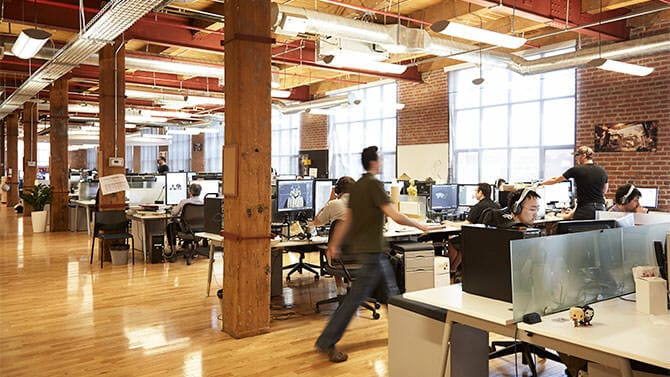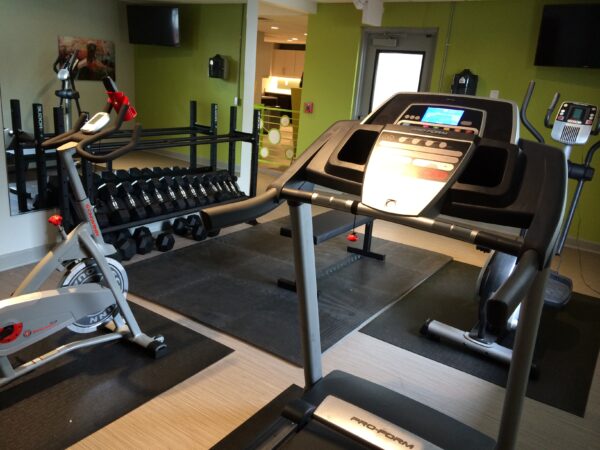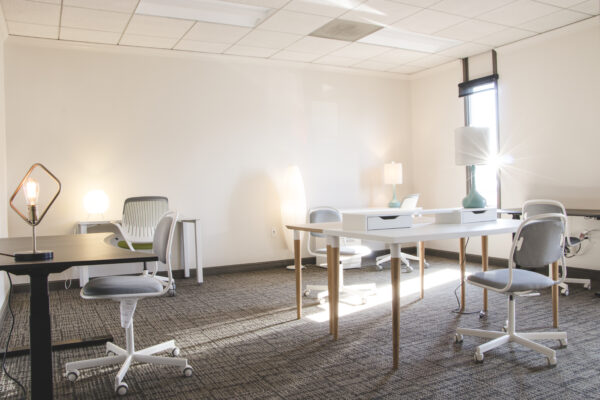Studies show that yes, they can be.
Years ago technology exec Chris Nagele did what most companies were doing, moved his team into an open office concept.
Prior to moving to an open office space, Nagele’s staff was working from home but he wanted everyone to be together to bond and collaborate. It quickly became clear that everyone was distracted, productivity suffered and the majority of the employees were unhappy, including Nagele himself.
Three years after moving into the open office space, Nagele moved the company into their own space where everyone had their own spot complete with a closing door!
Open office spaces have been an undeniable trend over the last few years and many companies have been embracing this change of how the work place is viewed. While few have moved back into traditional offices with doors, research has shown that we’re 15% less productive, have difficulty concentrating and are twice as likely to get sick in an open office space.
Nagele has heard from others in the technology world that they also longed for a closed office lifestyle. “They never get anything done and have to do more work at home,” he says.
Now, it’s not likely that the open office concept will just go away anytime soon, but there has been a shift over the last year or two in companies wanting privacy with a closed door.
The more focus the better
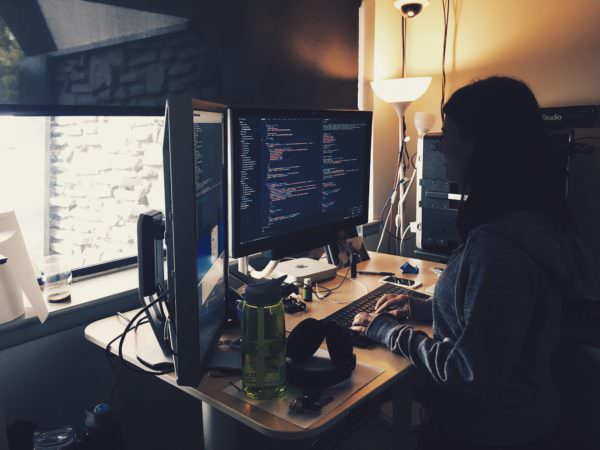
There’s a big reason why we love a space with four walls and a door that shuts: focus. Here’s the thing, multitasking is tough and small distractions cause us to lose focus for upwards of 20 minutes.
Depending on the space, some open spaces can negatively impact our memory. This is especially true for those who are at a space where people sit wherever they want and move their equipment around with them.
Information is better retained when we sit in one spot; it’s not obvious to us, but we offload memories, often little details, into our surroundings. These details, like a quick idea or a color change on a brochure, can only be recalled in that setting. This is similar to when you have an idea or a thought and then forget about it, what’s the first thing you do? Retrace your steps to where you were when you had the idea or thought.
We don’t collaborate like we think
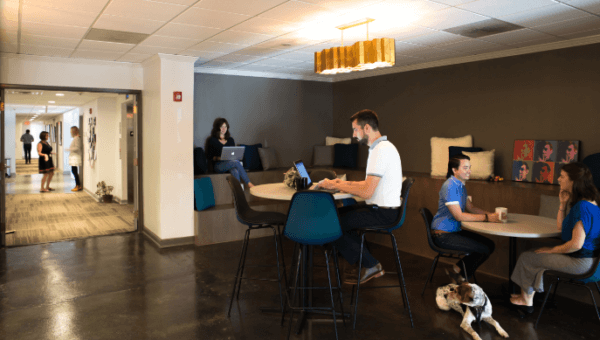
For a lot of us, it’s the noise that distracts us the most. Professors at the University of Sydney found that nearly 50% of people with a completely open office floor plan, and nearly 60% of people in cubicles with low walls, are dissatisfied with their sound privacy. Only 16% of people in private offices said the same.
Besides being more affordable, one main argument for open work space is that it increases collaboration; however, it is well documented that we rarely brainstorm ideas when we’re just chatting around. Instead, as many of us know, we’re more likely to hear about a Christmas gift someone is buying for a family member or someone’s problem with their significant other.
Think about it real quick: if you work in an open office, you book a conference room to brainstorm because it’s still an act that requires some level of planning and privacy. Our best work is done when have total focus. We can work in a busy place but the product won’t be as good as if we’re in a quiet space.
It’s important for all of us to bond with the people around us and to to know each other but there are plenty of ways to bond in closed office spaces. Nagele’s team, for example, eat lunch together everyday and a few ideas come out of those lunch time chats, but most come to fruition from more focused brainstorming sessions.
Find the right balance
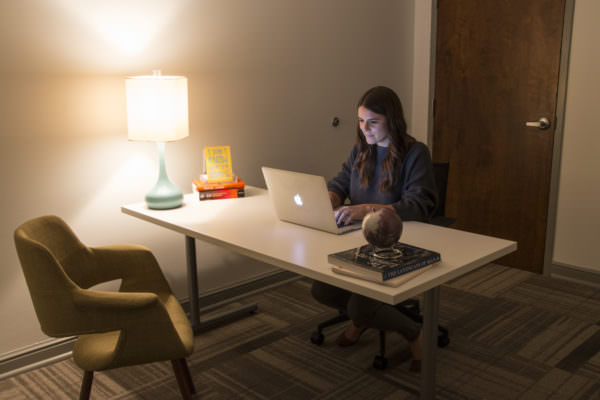
For jobs that require focus, some companies that aren’t wanting to leave the open office space are experimenting with quiet rooms and closed spaces. Problem is, some of us aren’t comfortable with leaving the team to go off on our own, it can appear as if we’re not pulling our weight if not present. This is particularly true in high-pressure environments.
A solution to that is having closed spaces for a small team of people, they can still collaborate but can also block out noise from other teams of people they don’t need to hear from.
The bad news for people who are in an open office and aren’t necessarily happy about it, the concept isn’t going away anytime soon. But, says Nagele, more companies should consider what he’s found. His employees are happier and more productive, this not only helps the company, but the team as a whole.
This is where we, Center 615, come in. We’re a shared office space comprised of private suites, giving you and your team the opportunity to network with the campus community while always having your own private suite to take care of business.
“People can now do focused work and they have more time to work. That’s helped everyone’s mindset.” says Nagele.
“Why open office office spaces are bad for us” By Bryan Borzykowski. BBC.

